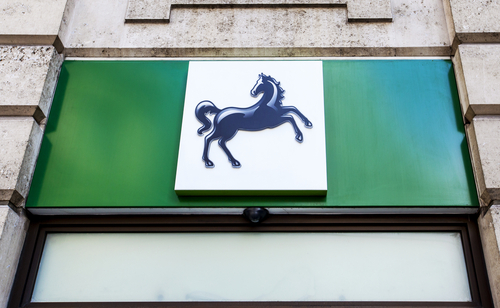Getting Started
Lloyds: Why buy a company that even Woodford is avoiding?

The Lloyds share sale has galvanised a small army of new investors. But investing in a single stock – particularly one that fund managers are sceptical about – comes with a number of risks.
The Lloyds share sale has spurred consumers to get excited – or at the very least – interested in investing.
More than 170,000 people have registered for email updates about the share offering from stockbroker Hargreaves Lansdown since the government announced its plans on 5 October.
One in eight of these people are first-time investors.
To recap, the Treasury plans to sell at least £2bn of Lloyds shares to individual investors next spring at a discounted price, with a bonus share for every 10 shares for those who hold their investment for more than a year.
As a nation of borrowers, encouraging people to save and invest is a good start to counter the problem that the vast majority of us won’t have enough money to see us through retirement.
Laith Khalaf, senior analyst at Hargreaves, says: “The Lloyds share offer has clearly captured the imagination of first time investors. This demonstrates how high profile public offerings can motivate people to think about investing for their future.”
However, putting money into a single stock is fraught with risk. In fact it goes against the well-worn mantra of investing, namely that diversification is key.
As Maike Currie of Fidelity Personal Investing says: “It’s a cliché, but you really should put your eggs in a variety of baskets. It’s the best way of ensuring that your wealth is not irretrievably damaged by one wrong decision.”
Previous privatisations of state assets such as the Royal Mail offer have attracted large numbers of people looking to sell their holding within a very short space of time for a quick profit.
But as Jason Hollands, managing director of advice firm Bestinvest points out, this isn’t really investing at all, more taking a punt.
He says these offers are deliberately keenly priced to prove popular with the voting public.
“This has provided some with the impression that investing in equities is all about making a quick turn, which it isn’t.”
Of course the government has structured the Lloyds offer to encourage investors to hang on to their shares and receive a bonus.
But an arguably more important question remains: whether genuine investors should really be purchasing a bank, especially one that had to be bailed out by the government?
Many professional investors remain highly sceptical of banks.
Highly experienced fund managers, including Neil Woodford, are steering clear of the sector altogether and even contrarian investor Alex Wright, who runs the Fidelity Special Situations fund, admits it is the stand-out unloved sector in the UK.
These are experts who have the analysis, experience and research to hand to make the kind of judgement calls on when is the right time to buy or sell an individual stock.
Even Eric Moore, manager of the Miton Income fund and who holds a small position in Lloyds, urges caution.
“Lloyds is the only UK bank I own. I think it is OK in the context of a broader portfolio, but if you are only going to own one thing, Lloyds may not be the best place to start. It is enormously leveraged and the regulatory framework is still unsettled. Banks remain high risk investments.”
For individuals genuinely interested in investing, the message is spread your savings and if you are set on purchasing individual shares, keep it to a small part of your overall portfolio.
[article_related_posts]